Miyoko’s Cheese has gained popularity among vegans and dairy lovers for its rich, creamy, and delicious flavors. Made from plant-based ingredients, it offers a cruelty-free alternative to traditional cheese.
However, plant-based cheeses can have different storage requirements, unlike regular dairy cheese, which has a relatively long shelf life. It is essential to know the shelf life of Miyoko’s Cheese to ensure you can fully enjoy its taste and quality.
While every type of cheese may have slightly different recommendations, understanding the general guidelines for storing and using Miyoko’s Cheese will help you make the most of this tasty, dairy-free alternative. Let’s dive into how long Miyoko’s Cheese can last and how to keep it fresh.
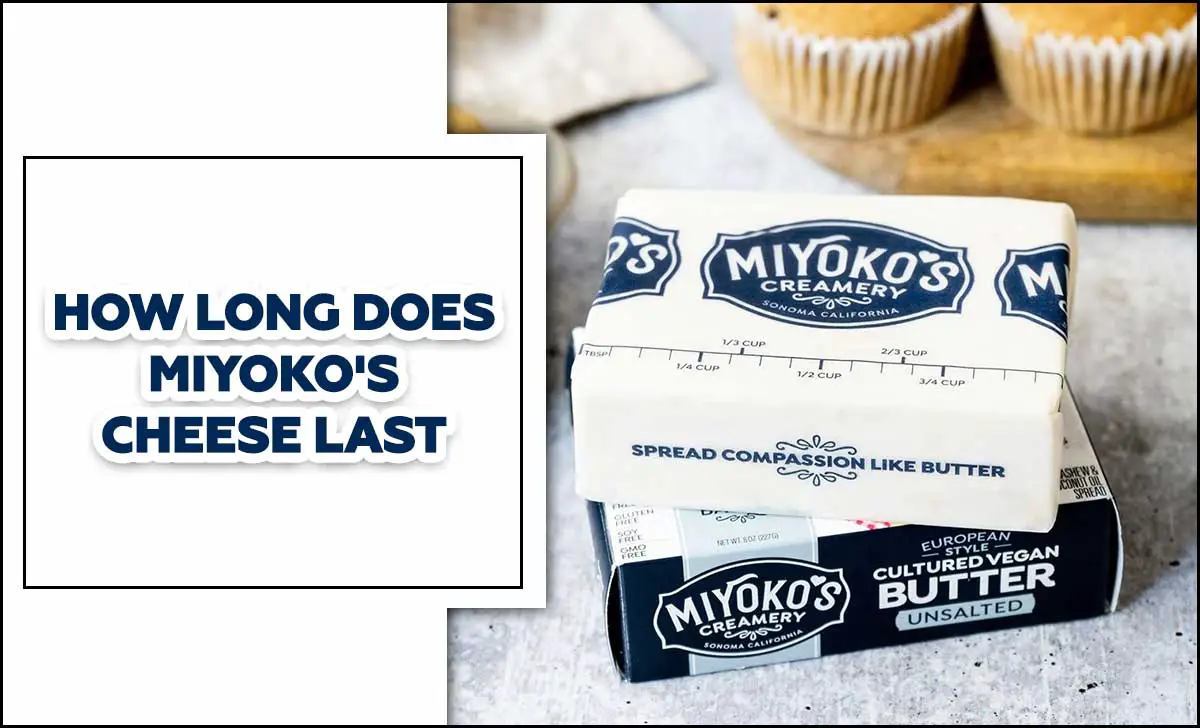
Contents
- 1 Let’s Know How Long Does Miyoko’s Cheese Last
- 1.1 The Shelf Life Of Miyoko’s Cheese
- 1.2 Factors Affecting The Shelf Life Of Miyoko’s Cheese
- 1.3 Signs That Miyoko’s Cheese Has Gone Bad
- 1.4 Factors That Can Affect The Shelf Life Of Miyoko’s Cheese
- 1.5 How To Properly Store Miyoko’s Cheese To Extend Its Freshness
- 1.6 Tips For Using Up Leftover Miyoko’s Cheese Before It Spoils
- 1.7 Creative Ways To Use Miyoko’s Cheese Before It Expires
- 1.8 How To Tell If Miyoko’s Cheese Is Still Safe To Eat After The Expiration Date
- 1.9 Frequently Asked Questions
- 1.10 Is Miyoko Cheese Healthy?
- 1.11 Is Miyoko’s Vegan?
- 1.12 Do Vegan Products Expire?
- 1.13 What Is The Fattiest Cheese?
- 1.14 What Is The Creamiest Cheese?
Let’s Know How Long Does Miyoko’s Cheese Last

Consuming Miyoko’s cheese within 12 weeks after opening and checking for any issues is recommended. The shelf life of Miyoko’s cheese in your fridge varies depending on the variety of cheese you have purchased.
On average, Miyoko’s cheese has a shelf life of approximately four to six weeks when stored properly in a refrigerator. This duration allows ample time for individuals to enjoy the cheese without compromising its taste or texture.
It is important to note that the expiration date or best-by date mentioned on the packaging should be followed for optimal freshness.
It’s a popular vegan alternative to traditional cheese, lasting up to two weeks in the fridge. However, shelf life may vary by variety, so check the label or consult the manufacturer. Use caution and common sense when enjoying Miyoko’s cheese, as with any perishable food.
The Shelf Life Of Miyoko’s Cheese
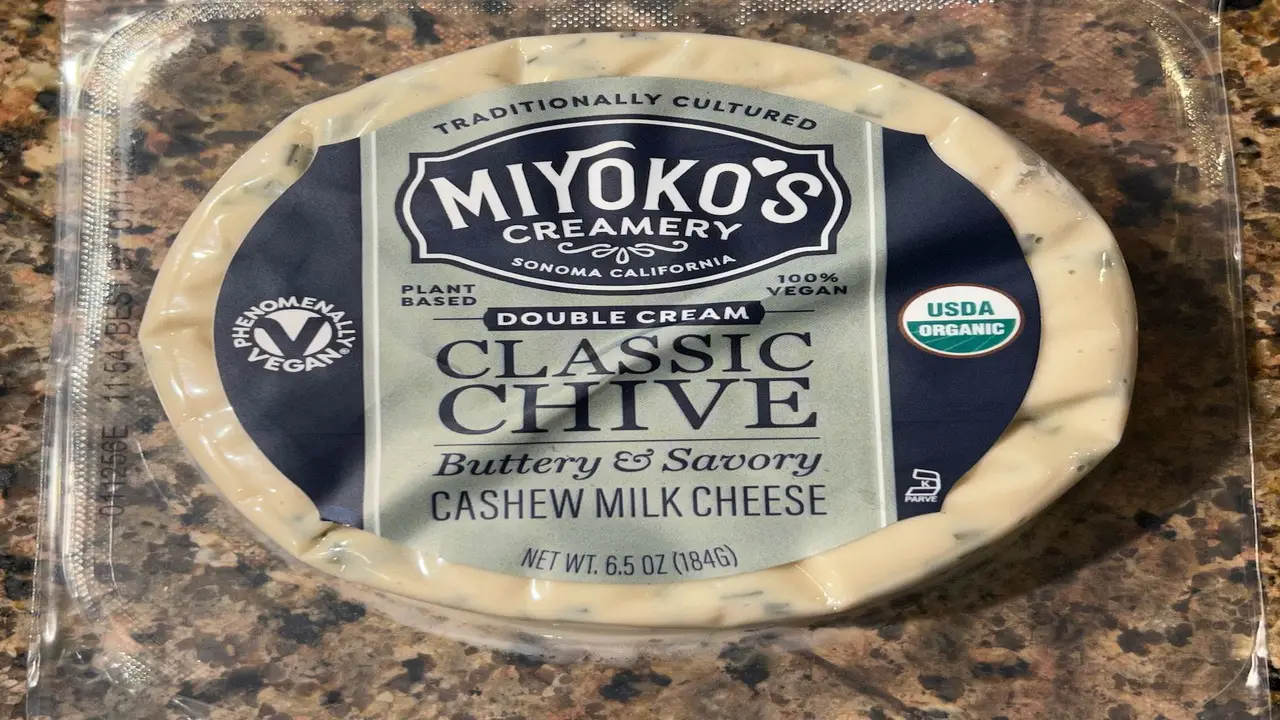
Miyoko’s cheese has a shelf life of approximately 4-6 weeks when stored properly. It is important to keep the cheese refrigerated to maintain its freshness and quality.
Once opened, consuming the cheese within 7-10 days is recommended for optimal taste and texture. If you’re a fan of Miyoko’s Cheese, you might be curious about its shelf life. Nobody wants to waste vegan cheese, so how long does it last?
“A research states that by using cheese enthusiast molds and aging them in a refrigerator at 38 degrees F (3 degrees C), the entire process from making the cheese to consumption can be completed in four weeks.”
However, please note that these timeframes can vary depending on the specific type of Miyoko’s cheese and individual storage conditions. To ensure the best experience, always check the expiration date and follow any additional instructions on the packaging.
Factors Affecting The Shelf Life Of Miyoko’s Cheese
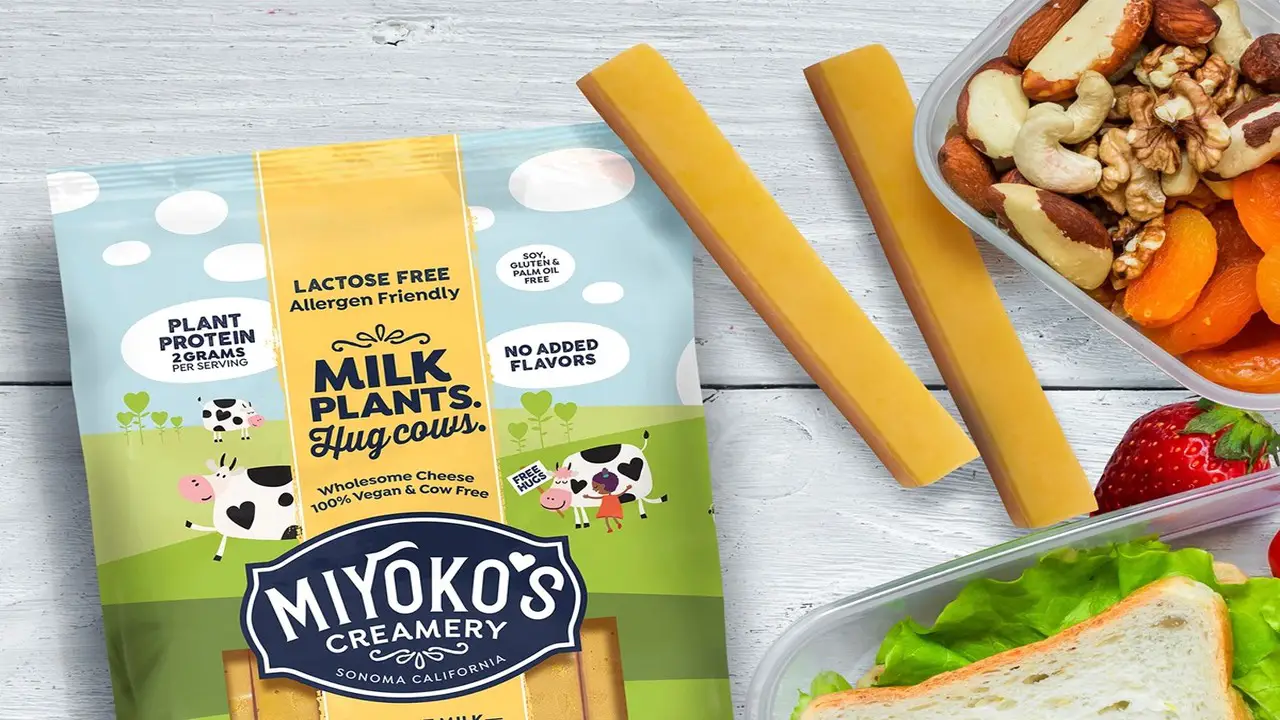
Several factors, including storage conditions and the specific variety of cheese, can influence the shelf life of Miyoko’s Cheese. Proper storage is crucial in maintaining the quality and longevity of the cheese.
Factors such as temperature, humidity, and exposure to air can greatly affect its shelf life. Storing the cheese in an airtight container or wrapping it tightly in plastic wrap can help preserve its freshness.
Additionally, different types of cheese may have varying shelf lives due to their moisture content, ageing process, and ingredients used. Understanding these factors is important for consumers and retailers to ensure the cheese’s quality and maximize its shelf life.
Signs That Miyoko’s Cheese Has Gone Bad
Miyoko’s cheese, known for its delectable vegan cheese products, has recently faced some concerns regarding its quality. Some consumers have reported instances of the cheese going bad prematurely.
It’s important to know when Miyoko’s cheese has gone bad to ensure you consume it at its best layers of quality. Always check the expiration date on the packaging and store Miyoko’s cheese properly to extend its shelf life. Here are some signs to look out for:
- Mold: If you notice any mold growth on the cheese, it clearly indicates that it has spoiled and should not be consumed.
- Unpleasant Odor: If the cheese emits a strong or unpleasant smell, it may be a sign that it has gone bad. Trust your nose, and if it smells off, it’s best to discard it.
- Change In Texture: If the cheese becomes slimy, overly soft, or develops an unusual texture, it is likely no longer good to eat.
- Taste: If the cheese tastes sour or has an off-flavour, it may have spoiled and should not be consumed.
Factors That Can Affect The Shelf Life Of Miyoko’s Cheese
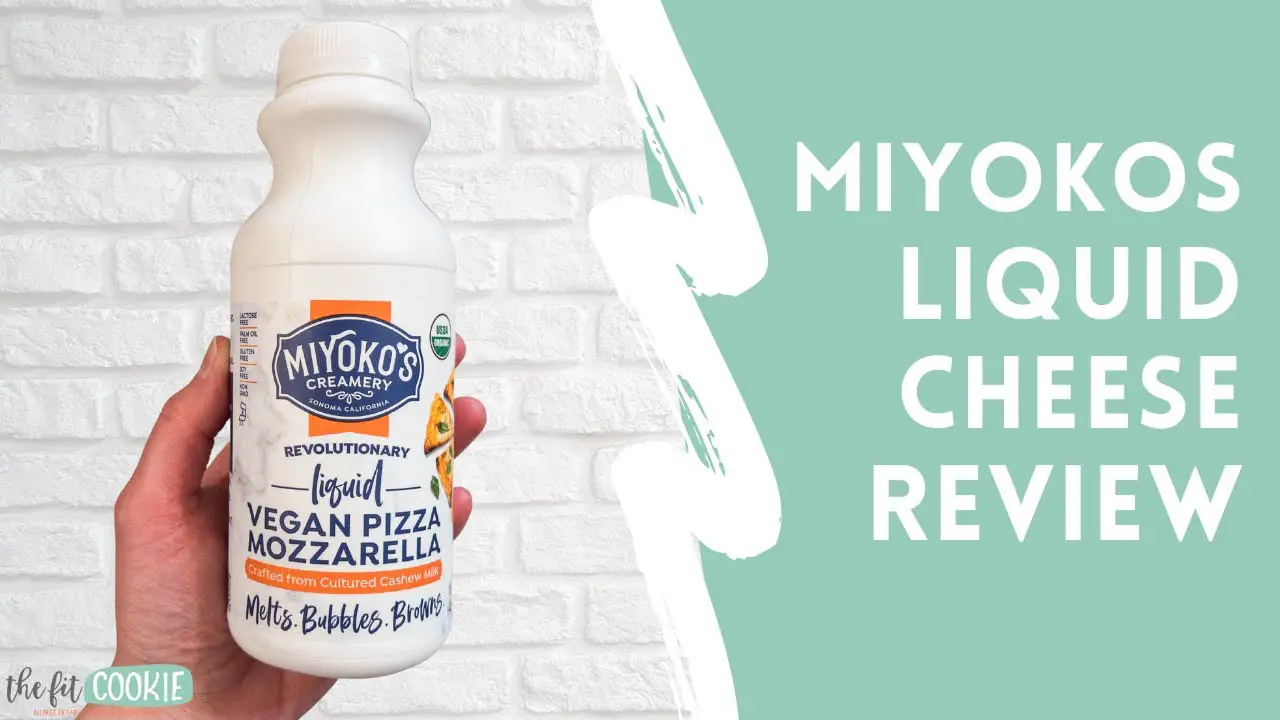
Miyoko’s fermentation process typically results in delicious flavours and textures. However, factors such as Organic Chickpeas, herbs, and hours of fermentation can impact the cheese’s longevity. It is important to note that Miyoko’s cheese is free from harmful additives like Trans Fat, making it a healthier alternative.
Despite these occasional issues, Miyoko remains committed to providing high-quality Artisan plant milk cheese to satisfy vegan cheese enthusiasts. The shelf life of Miyoko’s cheese can be affected by several factors. Here are some key considerations:
- Storage Conditions: Proper storage is essential for maintaining the freshness of Miyoko’s cheese. It should be stored in the refrigerator between 35°F and 45°F.- Packaging: The packaging of Miyoko’s cheese is designed to help preserve its quality. Ensure the package is properly sealed after each use to prevent air exposure.
Type Of Cheese: Different types of Miyoko’s cheese may have varying shelf lives. Soft cheeses tend to have a shorter shelf life compared to harder varieties. - Use-By Date: Check the use-by date on the packaging to determine how long the cheese is expected to stay fresh. Consuming Miyoko’s cheese before expiration is recommended for optimal taste and quality.
How To Properly Store Miyoko’s Cheese To Extend Its Freshness

To extend the freshness of Miyoko’s cheese, it is important to store it properly. Miyoko’s Cheese has taken a revolutionary step in extending the freshness of its products. Following these storage guidelines ensures that your Miyoko’s cheese stays fresh for as long as possible. Here are some tips:
- Keep it refrigerated at all times.
- Store it in an airtight container or wrap it tightly in plastic to prevent air exposure.
- Avoid storing it near strong-smelling foods, as the cheese can absorb odors.
- Use clean utensils when handling the cheese to prevent cross-contamination.
- If you have leftover cheese, rewrap it tightly and return it to the refrigerator promptly.
Tips For Using Up Leftover Miyoko’s Cheese Before It Spoils
Regarding Miyoko’s, it’s important to use cheese before it spoils to ensure maximum freshness and flavor. By following these tips, you can ensure that none of your precious Miyoko’s cheese goes to waste and enjoy every bite to its fullest potential. Here are some tips for making the most of your Miyoko’s cheese:
- Miyoko’s cheese typically has a shelf life of about 2-3 weeks when stored properly in the refrigerator.
- To extend the life of your Miyoko’s cheese, keep it tightly sealed in its original packaging or transfer it to an airtight container.
- If you have leftover Miyoko’s cheese that you won’t be able to consume before it spoils, consider freezing it. You can freeze Miyoko’s cheese for up to 3 months without affecting its taste or texture.
- When thawing frozen Miyoko’s cheese, allow it to defrost slowly in the refrigerator for best results.
- If your Miyoko’s cheese develops any mold or an off smell, it is best to discard it to avoid any potential foodborne illnesses. Remember, when in doubt, throw it out!
Creative Ways To Use Miyoko’s Cheese Before It Expires
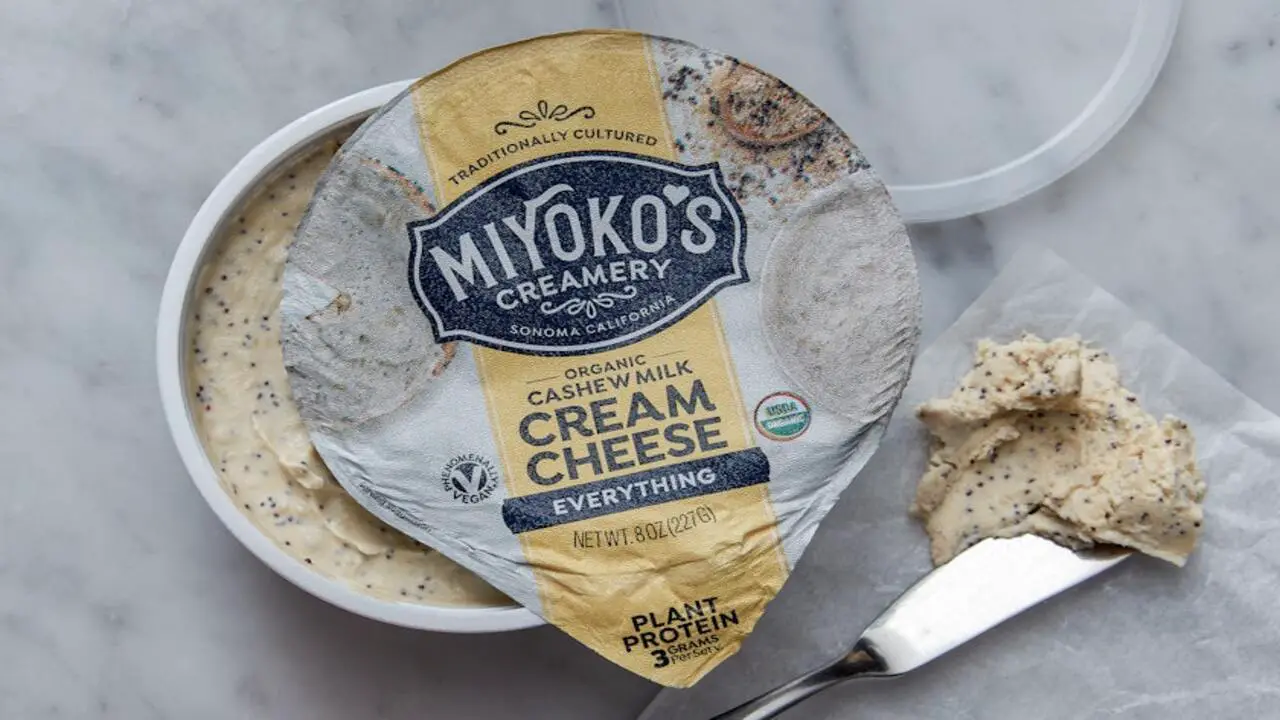
Miyoko’s cheese is a delicious and versatile plant-based alternative that can add a creamy and flavorful touch to any dish. Remember to check the expiration date on your Miyoko’s cheese packaging to ensure freshness and quality.
With these creative ideas, you’ll never waste any of this delicious vegan cheese! To make the most of your Miyoko’s cheese before it expires, here are some creative ways to use it:
- Gourmet Grilled Cheese: Upgrade your classic grilled cheese sandwich by using Miyoko’s cheese instead of traditional dairy cheese. The creamy texture and rich flavor will take this comfort food favorite to a new level.
- Vegan Mac And Cheese: Whip up a decadent vegan mac and cheese by melting Miyoko’s cheese into a creamy sauce. Toss with cooked pasta and bake for an ooey-gooey dish that will satisfy even the pickiest eaters.
- Cheesy Stuffed Mushrooms: Fill large mushroom caps with a mixture of sautéed veggies, breadcrumbs, and crumbled Miyoko’s cheese. Bake until golden brown for a savory appetizer or side dish.
- Dairy-Free Pizza: Spread Miyoko’s cheese on your favorite pizza crust and top with your preferred toppings. Bake until bubbly and golden for a satisfyingly cheesy plant-based pizza.
- Creamy Pasta Sauces: Use Miyoko’s cheese as a base for creamy pasta sauces. Melt it with plant-based milk and seasonings, then toss with cooked pasta for a quick and flavorful meal.
How To Tell If Miyoko’s Cheese Is Still Safe To Eat After The Expiration Date
Miyoko’s cheese is known for its delicious taste and high-quality ingredients. While the expiration date on the packaging provides a general guideline for when the cheese is at its freshest, it does not necessarily mean it is no longer safe to eat after that date. Using your senses and common sense is important to determine if Miyoko’s cheese is still safe to consume.
Look for any signs of mold or unusual discoloration on the cheese. If there are no signs of spoilage and the cheese smells and tastes normal, it is likely still safe to eat. However, if you notice any off-putting odors or flavors, it is best to err on caution and discard the cheese. It’s always better to be safe than sorry regarding food safety.
Conclusion
Miyoko’s cheese has a long shelf life. It lasts longer than expected. The main ingredient is cow’s milk, which has been used for thousands of years. Other ingredients include rennet, salt, and lipase, an enzyme that makes the cheese soft and spreadable by breaking down proteins.
The amount of lipase affects the texture of the cheese. Adding too much lipase can result in a runny mess instead of a creamy spread. Knowing this, we hope this information may help you regarding Miyoko’s cheese expiration date.
Frequently Asked Questions
Is Miyoko Cheese Healthy?
People generally consider Miyoko’s cheese a healthier alternative to traditional dairy-based cheese. Plant-based ingredients, such as nuts or legumes, make it, and it does not contain cholesterol or saturated fats found in dairy cheese.
Is Miyoko’s Vegan?
Yes, Miyoko’s is a vegan brand specialising in plant-based dairy alternatives. Founded by chef Miyoko Schinner in 2014, this brand has become synonymous with delicious, high-quality plant-based dairy alternatives.
Do Vegan Products Expire?
Yes, vegan products can expire just like any other food product. The shelf life of vegan products varies depending on the specific item and its ingredients.
What Is The Fattiest Cheese?
The fattiest cheese is typically blue, with an average fat content of 28-34%. From sharp cheddars to creamy bries, each type offers a unique experience for the taste buds.
What Is The Creamiest Cheese?
The creamiest cheese is typically considered to be Brie. Its soft and velvety texture results from its high-fat content, giving it a rich and smooth taste.
